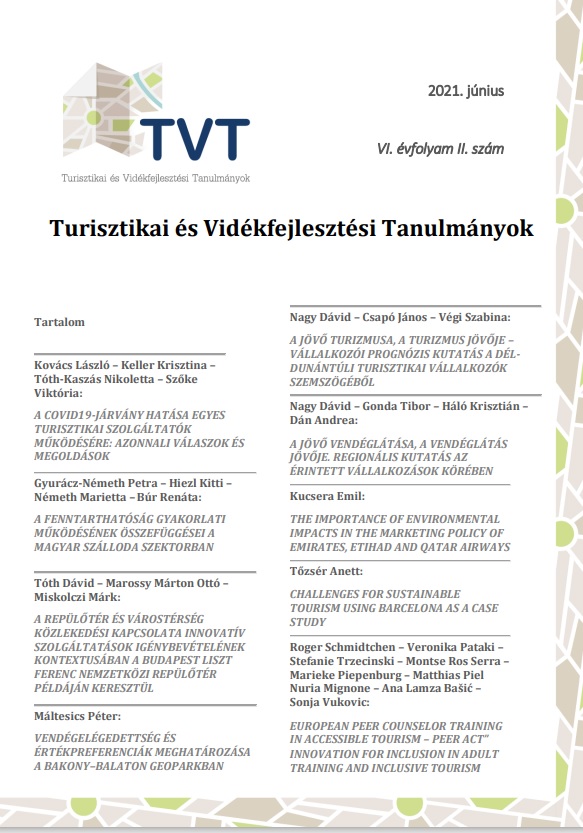EUROPEAN PEER COUNSELOR TRAINING IN ACCESSIBLE TOURISM – PEER ACT” INNOVATION FOR INCLUSION IN ADULT TRAINING AND INCLUSIVE TOURISM
Keywords:
people with disabilities, tourism, adult education, equal opportunitiesAbstract
This article introduces the Erasmus+ “European Peer Counselor Training in Accessible Tourism –
PeerAcT” project which is a project for the implementation of tourism for all. The project runs for
30 months until August 2021 and six project partners from five European countries are taking part.
The project aims to connect the areas of adult education and tourism in regard to the inclusion of
people with disabilities not only as potential customers but also as adult trainers. Core aspects of
the aims and expected effects of the PeerAcT project are the inclusion of people with disabilities
as peer experts, the development of a needs and interests group-based training of people involved
in the tourism sector, inclusion and accessibility in tourism in general and the development of new
approaches for adult education. With regard to the concrete implementation of these aspects five
intellectual outcomes are developed. Because of the lack of awareness of inclusion in the touristic
sector the PeerAcT project offers a wide range of educational and economic opportunities for both,
people with disabilities and experts in tourism.


